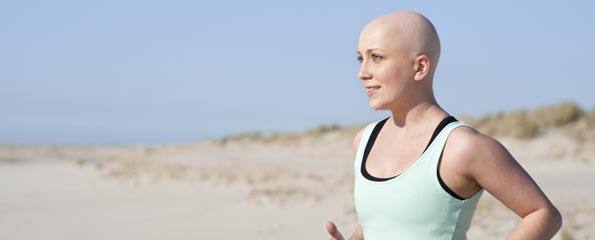Greens Can Keep Breast Cancer at Bay
Scientists have found that a molecule in vegetables such as broccoli and cabbage can inhibit the growth of breast cancer cells and could be used in conjunction with drugs to help fight the cancer. Their most recent findings were published in Carcinogenesis and are discussed today at the National Cancer Research Institute Conference.
It has been known for some time that eating a balanced diet, including fresh fruit and vegetables, leads to a number of health benefits and can help prevent some cancers, but more precise evidence is now emerging as to the benefits of specific substances present in our food.One research centre is looking past the essential nutrients contained in plants, to the thousands of other biologically active molecules they hold. Indole-3-carbinol (I3C) is one such molecule which is increasingly being hailed as inhibiting cancer development in both animal models and humans.Scientists funded by the Medical Research Council at the University of Leicester decided to look at the impact of I3C on 4 different types of breast cancer cells. They found that the substance altered the receptors in three of the cell types. This change could make the cancer cells more vulnerable to anticancer drugs which also target these receptors, making the drugs more effective.Professor Margaret Manson who led the research says;”Although we need to carry out further studies on tumours removed from patients, the potential benefits are clear. Dietary agents are kind to normal cells at doses which can slow down or kill cancer cells. Combining them with drugs may enhance the drugs’ effectiveness and could allow reduced doses to be given to patients. Many chemotherapeutic drugs are toxic substances and the smaller the dose the better for the patient.””As dietary substances like I3C have a proven track record of being safe for the patient, we hope that the journey to clinical trials will be relatively straightforward,” added Professor Manson.Dr Sheila Bingham Director of the Medical Research Council Centre for Nutrition and Cancer at the University of Cambridge, who is chairing today’s session at the NCRI cancer conference said”This study supports the growing evidence that food can be important in altering our susceptibility to cancer and possibly survival from it, and may help to explain why fruits and vegetables are so important.”I3C is naturally present in cruciferous vegetables, but the doses which would be required in potential breast cancer treatments would have to be formulated to ensure they were high enough, delivered in the right way and reaching the right areas. It is also thought I3C may have a similar impact on colon cancer cells.However, the research also confirms the preventative qualities of I3C, demonstrating how it is able to protect us from carcinogens. There are thousands of other molecules present in fruit and vegetables which could have similar properties. The case gets stronger everyday to ensure sufficient levels of fruit and vegetables in our diets.”It is notoriously hard to conduct large-scale studies looking at the cancer preventing effects of these substances in our food, but the in vitro evidence is growing that these agents would make an ideal addition to preventive and combinatorial anti-cancer strategies,” said Professor Manson.(Source: Carcinogenesis: University of Leicester: October 2006.)
Dates
Tags
Created by:

 Login
Login














